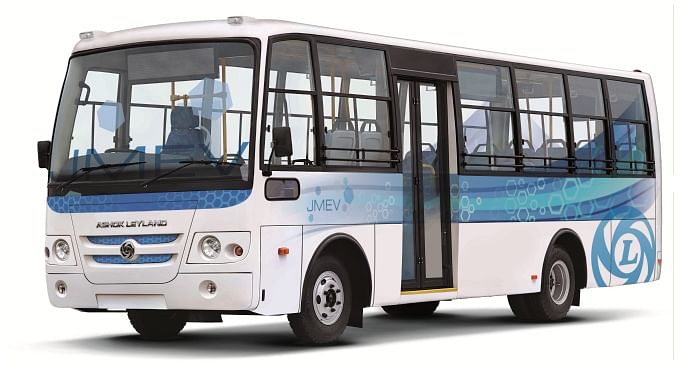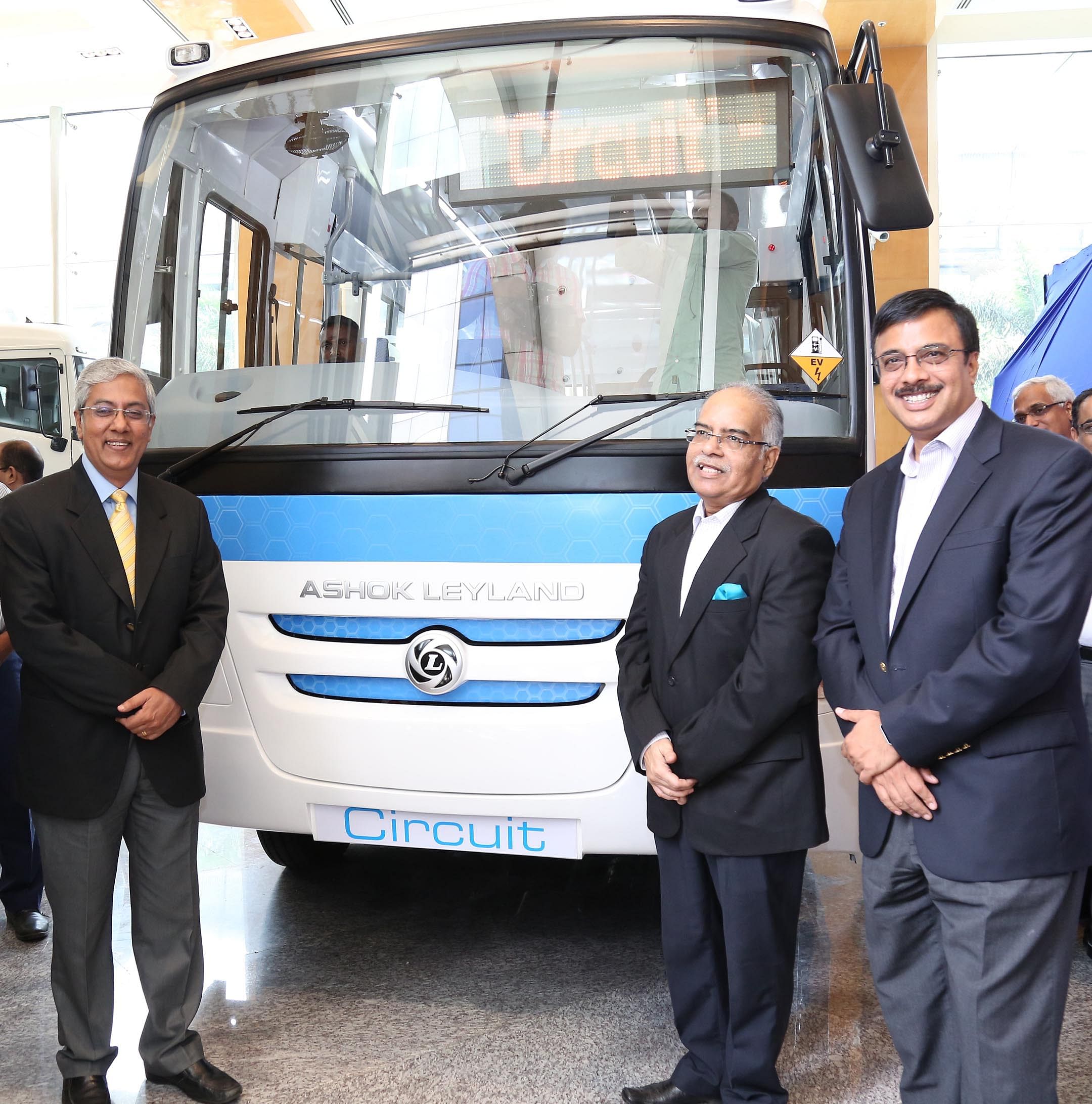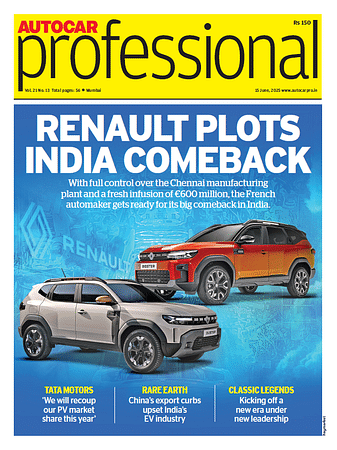Ashok Leyland launches first indigenous all-electric bus
The new ‘Circuit’ series of vehicles, fully designed and engineered in India for Indian road and load conditions, will be offered on multiple platforms.
Taking the lead among commercial vehicle manufacturers in India, Ashok Leyland today commercially launched the all-electric Circuit series bus which has been fully designed and engineered in India for Indian road and load conditions. The new ‘Circuit’ series of vehicles will be offered on multiple platforms.
As the cost of batteries gradually comes down, the payback period compared to diesel will also reduce, enabling a speedier consumer shift to electric vehicles (EVs). Ashok Leyland claims that in comparison with a conventional diesel bus, the payback time for its electric bus is 4-5 years.
Although Ashok Leyland has its wholly owned subsidiary Optare which makes electric buses, the new Circuit series bus is fully indigenous. The 31-seater bus, which has a top speed of 75kph, is powered by lithium ion batteries and has a range of 120km on a single charge. The powertrain is a driveline motor coupled to a propeller shaft and differential. Depending upon the applications and customer need, Ashok Leyland can make buses up to 55-60 seats but given the cost of the battery and duty cycle, the bus will be ideal up to 50 seats
The zero emissions bus is equipped with an on-board fire detection and suppression system, full vehicle diagnostics and advanced telematics.

Speaking at the bus’ reveal today in Chennai, chief guest Ambuj Sharma, additional chief secretary, Industries and Commerce, Government of India, said, “Today is a very significant day for us as state and as a country. India’s first-ever fully electric bus, developed for India and made in India, is a big leap in mass public transport. This vehicle will support the government initiative of reducing India’s Rs 800,000 crore fuel import bill and is a promise for a brighter and cleaner future for all of us and for our future generations.”
Vinod K Dasari, MD, Ashok Leyland, said, “The Circuit series of buses is another testament to Ashok Leyland’s commitment to leverage India’s technological innovation to deliver relevant and best-in-class solutions for India and the world. In April 2015, at the FAME Delhi workshop, we had committed to vehicles with full electric powertrains by January 2017. I am happy to dedicate the first vehicle in this new Circuit series, ahead of schedule.
Answering a question from the media, T Venkataraman, senior vice-president, global bus, Ashok Leyland, said, “We are looking at various applications. To begin with, the largest one is city application which is State Transport Undertakings (STUs), feeder routes and tarmac. We have received interest from heritage sites and 3-4 STUs which are actively under tendering and shortly these buses will be on road.”
“There are currently two STUs including Mumbai’s BEST and Himachal Pradesh which have issued a tender and we are in the process of participating in it. Secondly under the FAME subsidy, STUs come on a first-come- first-served basis. Initiatives like these will push this bus for us,” he added.

L-R: T Venkataraman, senior VP – Global Bus; Ambuj Sharma, Additional Chief Secretary, Industries and Commerce, government of Tamil Nadu; and Vinod K Dasari, MD, Ashok Leyland and, unveil the Circuit Series electric bus.
“There are many players who import such vehicles. For us though the USP is that we are the first to introduce this electric bus and also make it in India. Had it been just an import-and-sell operation, we could have done it three years ago,” said Venkataraman.
The e-bus launched today has 40% local content. The battery has a lifespan of about 5-7 years depending upon the duty cycle. At present, the batteries are sourced from a US-based supplier. Commenting on this imported battery, Venkataraman said, “In electric buses, batteries are very critical and as a manufacturer you have to be very careful. We work with a company which validates that configuration.”
Nonetheless, Ashok Leyland is also exploring local sourcing of the battery, he said, which will help cut down the overall cost of the bus considerably. “If we get batteries of lesser weight, offering more distance and lesser maintenance in India, then we can source them. There will be dramatic changes over the next 3-5 years.”
Interview with Ashok Leyland’s Chief Technology Officer, Dr Seshu Bhagavathula
RELATED ARTICLES
VinFast’s second plant in Vietnam goes on stream ahead of India factory
Vietnamese EV maker’s second plant in its home market, which has a 200,000 EVs-per-annum capacity, will focus on produci...
Continental exits TBR market in India, shifts focus to car and SUV radials
German tyre manufacturer aims to tap the double-digit market growth opportunity for big SUV and luxury car tyres which w...
New ZF SELECT e-drive platform gives EV makers a choice in 100 to 300 kW range
Modular e-drive platform optimally matches 800-volt overall system and components such as the electric motor and power e...





 By Kiran Bajad
By Kiran Bajad
 17 Oct 2016
17 Oct 2016
 46729 Views
46729 Views





 Autocar Professional Bureau
Autocar Professional Bureau




